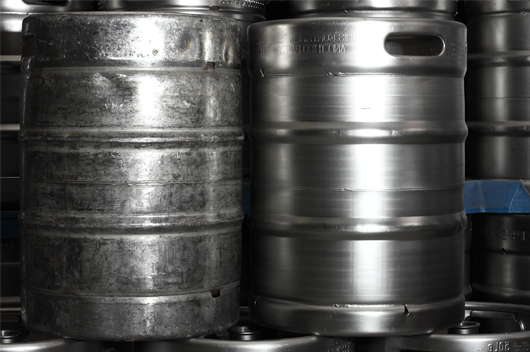Introduction:
At Used-Kegs we’re dedicated to promoting sustainability in the brewing industry through the reuse and renewal of metal beer kegs. While our focus is on the positive impact of repurposing old kegs, it’s equally important to examine the environmental implications of producing new kegs, particularly due to the presence of nickel.
What is Nickel:
Nickel is a versatile metal widely used in various industries, including the manufacturing of stainless steel, a primary material for beer kegs. Its inclusion in stainless steel enhances the material’s corrosion resistance and durability, making it ideal for storing and transporting beverages like beer.
Environmental Concerns:
The production of nickel has significant environmental consequences, starting from the mining and extraction processes. Nickel mining often leads to habitat destruction, deforestation, and soil and water pollution. Additionally, the energy-intensive nature of nickel extraction contributes to greenhouse gas emissions and exacerbates climate change.
Moreover, the manufacturing of stainless steel, which contains nickel, further compounds the environmental impact. The process involves high energy consumption, emissions of air pollutants, and the generation of industrial waste. These activities contribute to environmental degradation and pose risks to local ecosystems and communities.
Alternative Solutions:
In light of these environmental concerns, it’s crucial to explore alternative materials or manufacturing processes for beer kegs that reduce or eliminate the use of nickel. One promising approach is the adoption of recycled stainless steel, which not only minimizes the need for new nickel extraction but also reduces waste and energy consumption.
Furthermore, innovations in sustainable materials and manufacturing techniques offer opportunities for the brewing industry to transition towards greener practices. Alternative alloys, bio-based polymers, and advanced recycling technologies present viable options for producing eco-friendly beer kegs while maintaining quality and performance.
Conclusion:
As consumers and industry stakeholders, we have a responsibility to consider the environmental impact of our choices in supporting sustainability within the brewing industry. While reusing and renewing old beer kegs are essential steps towards reducing waste and conserving resources, we must also address the environmental consequences of producing new kegs, particularly concerning nickel usage.
By advocating for alternative materials, promoting responsible sourcing, and embracing innovative solutions, we can work together to minimize the environmental footprint of beer keg production while ensuring a more sustainable future for the brewing industry.
Join us in our commitment to sustainability, and let’s raise a glass to a greener, more eco-conscious approach to enjoying our favorite beverages.





